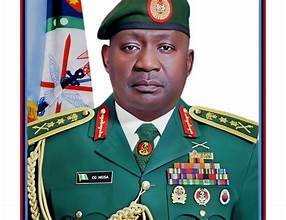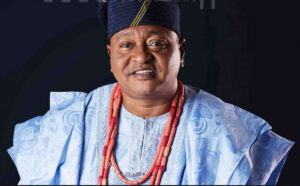Streets Renaming are not mere Acts of Cartographic Revision, it is Powerful Expressions of Identity, National Values – Legal Icon, Olonade
A Frontline legal icon , Solomon Ben Olonade, a Nigerian Lawyer, Nation-Building Advocate and Development Strategist ,INBECOS, London, United Kingdom has pointed out that, Street naming and renaming are not mere acts of cartographic revision but, are powerful expressions of identity, historical memory, political messaging, and national values.
The legal luminary who is the author of “The Wounded Nation, The Nation That Works” made this known in an interview with newsmen.
He argued that, “When handled Streets naming or streets renaming wisely, they serve as tools for unity, heritage preservation, and urban pride. But when politicised or weaponed, they can become subtle but potent triggers of discontent, division, and, in fragile states, even chaos or all-out national conflict.”
According to him, “having read bits and pieces of media commentaries on this burning issue, it’s infinitely important to make two quick points at the outset here. ”
“First: It is not the tiniest bit of my intent here to either join the clique or the clan, but rather, the goal of this concise contribution is to briefly take an overview of the core components of this matter for the good of all.”
“Secondly, be it known to all naysayers and gainsayers that LAW is good. That LAW must rule. That LAW is eternally inevitable. Indeed, that LAW governs the living, the dead and the yet unborn—as it takes the force of law, in every civil society, to set the proper standards of acceptable human behaviours in both the private and public realms of life.”
“However, despite the centrality of law, my goal here is far from asserting the legality or otherwise of the ongoing streets naming or renaming in Lagos or anywhere in Nigeria for that matter.”
“Why? Because, on every single legal issue, lawyers can, and we do often, take equal and opposite positions and argue most vehemently and most compellingly on both sides of the issue such that we ultimately leave every other person totally confused as to where exactly the truth of the matter really lies—of course, the court or court system does determine the outcome.”
“Meanwhile, on such significant and sensitive matter of this nature, we can all passionately engage in a lot of mere legality without justice, without that intangible but powerful sense of fairness and wholesome deals which often compels all stakeholders within a group, a state or a nation to be their best and give their best for the ultimate benefits of nation-building and predictable development.”
“Those two points being cleared, now, here is my take. In the current wave of renaming streets across Nigeria—especially in Lagos—many observers have raised concerns about the ethnic and political undertones driving these changes. ”
“Some streets are being named after political elites, past governors, or traditional rulers in ways that seem to favour one ethnic identity over others. When such actions occur without broad-based consultation, transparent justification, or cultural sensitivity, they risk being interpreted—rightly or wrongly—as exclusionary or hegemonic”.
*This concern becomes even more critical when viewed against the backdrop of Nigeria’s delicate ethno-religious balance, coupled with the most virulent violation of Nigerian security and protracted assaults on the already fragile architecture of peace in Nigeria.”
“As a country of over 250 ethnic groups, the potential for symbolic decisions to be misconstrued or manipulated is ever-present and has become ever-increasing in the recent years. If the renaming of streets appears to erase the contributions or presence of other ethnic groups in cosmopolitan cities like Lagos, it can sow seeds of suspicion, marginalization, and historical revisionism.”
“This is precisely how many of history’s most devastating conflicts began—not with bombs, but with perceived slights, symbolic erasures and political actions that subtly alienated segments of society. Rwanda’s 1994 genocide tragically exemplifies this trajectory.”
” What began as microaggressions in media narratives and civic decisions quickly metastasized into ethnic cleansing. The role of symbolism—street names, national identity cards, and cultural narratives—cannot be underestimated.”
“In Nigeria today, we must tread carefully. This leads me to ask two problem-solving questions.Is Street Renaming Capable of Reigniting Ethnic Crisis?Yes—if done carelessly or provocatively. The act of renaming can evoke long-standing grievances, especially in cities like Lagos that, while incontrovertibly remains in the Yoruba heartland, have evolved into multi-ethnic, pan-Nigerian, and even global urban centres.”
“Lagos is not just a city; it is even more than just a national mirror. Lagos is the heart of Africa and the city that the world must watch out for. Its street names, public institutions, and symbols should reflect the diversity, complexity, and unity of the Nigerian dream, the pride of Africa and the city that will capture the best components of frontline world capitals like London, New York City, Paris, Tokyo, Beijing, Singapore and their likes.Of course, the idea of a “No-Man’s Land” is not only preposterous”.
“At best, it is abundantly outrageous, and at worst, it’s rather overbearing, inflammatory and helluva of a counterproductive mess! Even the British who once hypothesised a similar of doctrine of bona vacantia have long abolished their concept of ‘ownerless property.’
“On the flip side, however, in a hugely cosmopolitan city like Lagos, which seeks to woo the world to come, to do business and to reside within its shores, when names are changed to honour only one group’s history or political figures, others may feel erased, unwelcome or significantly ostracised—won’t they? And when this pattern becomes systemic or is perceived to be part of a broader agenda of ethnic or political dominance, tensions may arise that go far beyond urban geography—they strike at the heart of national coexistence.”
“Ethnic tensions in Nigeria have often been stoked not merely by economic inequality or land disputes, but by symbolic violence—the kind that occurs when public policies or decisions appear to negate the identity or dignity of a group. A street name, like a national anthem or flag, carries deep emotional and psychological weight. It tells people who belongs, who is honoured, and who is invisible or should be invisible.”
What Can Be Done to Stem the Tide?
“Create an Independent Street Naming Commission, Committee or Ad hoc Arrangement: Nigeria’s major cities need culturally sensitive, non-partisan bodies to oversee all naming and renaming proposals. Such commissions should include urban historians, interfaith leaders, cultural scholars, and civil society actors. Their work must be rooted in justice, inclusion, and historical truth—not political favouritism or ethnic pride. ”
“The city of Barcelona in Spain maintains a dedicated ‘Street Nomenclature Committee’ under its City Council’s Department of Culture that competently and transparently handles matters of this nature.”
Ensure Public Participation and Consultation: Democracy thrives when citizens have a voice.
“Renaming decisions must be subject to community input, historical justification, and transparent criteria. Stakeholders—including residents, local historians, ethnic associations, and civic groups—should have a say. ”
“When people are consulted, they are more likely to understand, accept, and even celebrate the changes, and ultimately work for the common good of all.”
Promote Thematic Inclusivity in Street Naming:
” South-West, South-East, South-South, North-West, North-East and North-Central, let’s stop being myopic, mutually suspicious and mutually destructive. Let us broaden our national imagination. ”
*Naming can be done in thoughtful thematic clusters:Innovation Districts:
Honour Nigerian scientists, tech pioneers, entrepreneurs from all zones, thus inspiring the younger generations to learn their ways and surpass their records, thereby pushing the boundaries and advancing the frontiers of Nigerian developmental trajectory.Unity Boulevards: name after heroes of national integration from all zones.
*Diaspora Avenues:
Recognise global Nigerian achievers from all zones, thereby strengthening identity and pride.Women’s Heritage Lanes: name streets after Nigerian women who shaped education, activism, health, and governance from all zones.
*Develop Civic Education and Public Memory Projects:
Let renaming be part of a larger project to teach history, celebrate unity, and confront the past with honesty. Citizens should be educated on the figures being honoured, the events being remembered, and the values being projected. This inevitably fosters citizens ownership of the nation rather than mutual resentment, promotes memory rather than myth, and strengthens cohesion rather than compounding confusion.
Rejig Federal Character and National Inclusion Ethos:
Government at all levels must act and communicate in ways that reflect Nigeria’s pluralism. Peace is sustained not by silence, but by intentional inclusion. Symbolic justice must match systemic justice.Street Renaming as a Tool of Nation-Building In our quest for a new Nigeria, the politics of memory must be reimagined. ”
*Instead of fighting over who gets remembered, we should build a shared civic memory—a story where every tribe, faith or region sees itself as co-owner and co-builder of the Nigerian project. We must also recognise that naming is narrative, and it is narrative that often shapes identity.”
“The street a child grows up on can shape their sense of belonging. A name can inspire or injure. It can unite or divide. It can remind a people that they are part of a story worth living—or that their story has been deleted from the map.”
“In conclusion, street renaming is not a trivial matter or mundane exercise. It is a deeply symbolic act that must be handled with historical intelligence, moral integrity, and nation-building vision.”
“We must learn from Rwanda and other societies where unchecked symbolism escalated into bloodshed as the division between Hiatus and Tutsis was historically politicised and racialized”.
“Nigeria cannot afford to toy with memory, identity, or civic symbols at this volatile stage of her journey. In any part of the country, one question stands out that we must ask: are we naming streets to honour our heroes and unite our people—or to rewrite history for political gain? Our answer will determine whether we build a nation of shared dreams—or one of shattered illusions.”
Also, a renown politician in Osun State, Chief Adekola Olabisi on Sunday said,”there’s nothing unusual about streets renaming by the local government council authorities which are constitutionally empowered to administer such grassroots level of government in this country.”















Post Comment